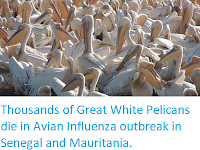The World Health Organisation was notified of an outbreak of Lassa fever in Togo following the confirmation of a case on 26 February 2022. Active case finding, and contact tracing has been conducted following the confirmation. The risk of transmission for this outbreak is assessed as low at the national and regional level given the experience of national authorities with past outbreaks and the cross-border communication with neighbouring countries.
On 26 February 2022, the national authorities in Togo notified the World Health Organization of an outbreak of Lassa fever after a 35-year-old female patient, from the town of Takpamba in the Oti-South District of the Savanes Region was laboratory confirmed as having been infected with the disease. The town borders Ghana and is located 96 kilometres from Dapaong, the capital city of the Savanes Region. The patient had previously lived in a village in the Save Commune in Benin, four kilometres from the Nigerian border, and arrived in Takpamba on 4 February prior to the onset of symptoms.
On 11 February, the patient developed symptoms including fever, abdominal pain and cough, and consulted the local health care facility on 14 February. Following three days of oral treatment and no improvement, the case was taken to another health centre where she was hospitalised for 24 hours and was later referred to a hospital where she was managed as an outpatient. On 22 February, the patient returned to the previously visited hospital following persistence of symptoms as well as having developed vomiting and bloody diarrhoea. As a result of her clinical picture, Lassa Fever was suspected, and the individual was isolated and notified to the health authorities. A sample was taken for laboratory analysis at the National Institute of Hygiene, Togo, and tested positive for Lassa Fever on 26 February. The patient died the same day, and a safe and dignified burial was performed.
A total of 26 contacts were identified from two health districts of the Savanes Region, including 10 health care workers, one of whom was symptomatic and isolated. The symptomatic health care worker was exposed through direct contact with the case but upon testing was negative for Lassa Fever. As of 23 March, all contacts have completed the follow-up period, and none developed Lassa Fever. No outbreak has been reported from Benin or Ghana associated with this reported outbreak in Togo, however, there is an ongoing outbreak in Nigeria.
Lassa fever is caused by the Lassa Virus, a member of the Arenavirida Virus family, single stranded RNA Viruses which cause a range of illnesses in animals and Humans, including Lujo Fever (a haemorrhagic disease endemic to southern Africa), Lymphocytic Choriomeningitis (a form of Meningitis) and Whitewater Arroyo Fever (a haemorrhagic disease endemic to the southwestern United States). It is an acute Viral haemorrhagic fever that is primarily transmitted to Humans through direct or indirect contact with food or household items contaminated with the urine or faeces of infected Rodents of the genus Mastomys. Though to a lesser extent, person-to-person infections can occur during the acute febrile phase through virus particles present in blood and bodily fluids of the infected person. This includes transmission in the health care facility and laboratory; thus, health care workers should be among the risk groups targeted for prevention. Overall, the case fatality ratio is around 15% among hospitalized patients with severe presentation.
The incubation period of Lassa Fever ranges from 6 to 21 days. The onset of the disease, when symptomatic, is gradual, starting with fever, general weakness, and malaise. After a few days, headache, sore throat, muscle pain, chest pain, nausea, vomiting, diarrhoea, cough, and abdominal pain may follow. In severe cases, facial swelling, fluid in the lung cavity, bleeding from the mouth, nose, vagina or gastrointestinal tract and low blood pressure may develop.
The antiviral drug, Ribavirin has been given as treatment for Lassa Fever in recent years, however, recent systematic reviews showed there is no strong evidence about the efficacy of Ribavirin treatment on the outcome of patients with Lassa Fever as well as optimal dosing regimens, highlighting the need for further research, particularly in the form of randomized clinical trials. Therefore, if the decision is to use Ribavirin, it should be made under clinical trial protocol to evaluate safety and efficacy of the drug and the dosage. There is currently no approved vaccine for Lassa Fever, however, optimized supportive care provided as early as possible with rehydration and symptomatic treatment can increase the chance of survival.
Lassa Fever is endemic in West Africa with cases frequently reported from Benin, Ghana, Guinea, Liberia, Mali, Nigeria and Sierra Leone. Togo is affected to a lesser extent, however, since 2016, outbreaks and sporadic cases have been reported in the country every few years. Notable Lassa Fever outbreaks have occurred in Togo in 2016, 2017, and the most recent was in January 2019 when two imported cases from Nigeria were reported in the Central and Kara regions of Togo. No further cases were identified, and the Ministry of Health declared an end to the outbreak in February 2019.
Outbreaks of Lassa fever in Togo have involved importation and exportation of cases at various times to nearby countries requiring the need for cross-border communication. In both endemic regions and areas with sporadic cases in West Africa, the majority of cases are reported during the dry season from December to April.
See also...



Follow Sciency Thoughts on Facebook.
Follow Sciency Thoughts on Twitter.




